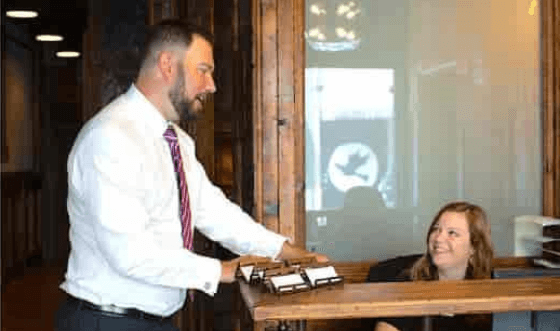Insurance policies are contracts involving two parties: the named insured and the insurance company. However, if you have liability insurance, then a third party often enters the mix: the person injured in an accident. These are the three parties in any personal injury claim.
Put simply, a first-party insurance claim involves a policyholder making a claim on their own policy. A third-party personal injury insurance claim, by contrast, involves a victim making a claim on another person’s policy.
Examples Of Third-Party Insurance Claims
Georgia requires that all motorists carry liability coverage. This insurance will cover any situation where the person who pays for the policy (the policyholder) is liable for an accident that injures a third person.
After an accident, the victim can make a claim on the policyholder’s insurance policy. This is an example of a third-party personal injury insurance claim. It is probably the most common type of claim involving car accidents.
The insurance company and the accident victim have no contract between them. But the insurance company has agreed to pay compensation to a victim when their policyholder is liable for a collision. This lack of a contract matters. Because of it, the insurance company only has certain obligations to a victim making a liability claim.
Outside the car accident context, a third-party insurance claim could involve a visitor who slips and falls in a store. They would make a claim on the store’s insurance policy.
Examples Of A First-Party Insurance Claim
A first-party personal injury insurance claim involves a claim made by the policyholder on its own insurance policy. In the personal injury context, this type of claim is rarer for one reason: the state only requires that you carry liability coverage. And liability coverage only covers third parties who are injured by the driver’s negligence.
However, there are some situations where a policyholder can make a claim on his or her own insurance. The first involves uninsured or underinsured motorist coverage. In Georgia, uninsured motorist coverage must be offered along with liability coverage, so many people have it.
Another example of a first-party personal injury insurance claim involves medical payments coverage. This is no-fault insurance that can pay for medical care after a wreck.
With a first-party insurance claim, the policyholder and the insurer have a contract. This contract should lay out certain duties to the insured. Georgia law also supplements whatever is in the contract.
Bad Faith Insurance Claims
Insurance companies must satisfy certain duties when investigating and settling claims. These duties are created by statute. When an insurer violates any of them, it has been acting in “bad faith,” and the victim can receive compensation.
For example, an insured can bring a claim when its insurer makes a frivolous or unfounded refusal to pay a claim to its insured. Under O.C.G.A. § 33-4-6, the insured can seek the amount of the loss, reasonable attorneys’ fees, and a penalty.
- Example: Kim was involved in an accident and seeks benefits under her medical payments policy. Her insurer denies the claim for no reason, so Kim can sue her insurer for bad faith.
A different statute, O.C.G.A. § 33-7-11(j), provides a similar remedy involving uninsured motorist claims. A policyholder typically needs to prove there was no reasonable reason to delay or deny payment on a claim.
- Example: Michael was struck by a negligent driver who was uninsured. He makes a claim with his uninsured motorist insurer, who unjustifiably delays payment and refuses to investigate. Michael can sue his insurer for bad faith.
A policyholder can also bring a bad faith claim when an injured third party is seeking compensation for a car or truck accident. Georgia law is very clear that an insurer must put its insured’s interests ahead of its own. To that end, the insurer must settle a valid liability claim within the policy limits if it receives a settlement offer. If the insurer refuses to, then the policyholder can sue its insurer for being financially exposed. The policyholder can also receive compensation in excess of its own policy limit.
- Example: Lyn backed into Sonya at the grocery store. Sonya’s attorney makes a request for $25,000 in personal injury benefits for the accident, which is within the limits for Lyn’s policy. The insurer refuses for no good reason, exposing Lyn to liability in court. Lyn can sue her insurer.
Contact Our Conyers Personal Injury Attorneys Today
Insurance law is complicated, and those who try to negotiate a favorable settlement themselves are at a marked disadvantage. Please contact MG Law today.


